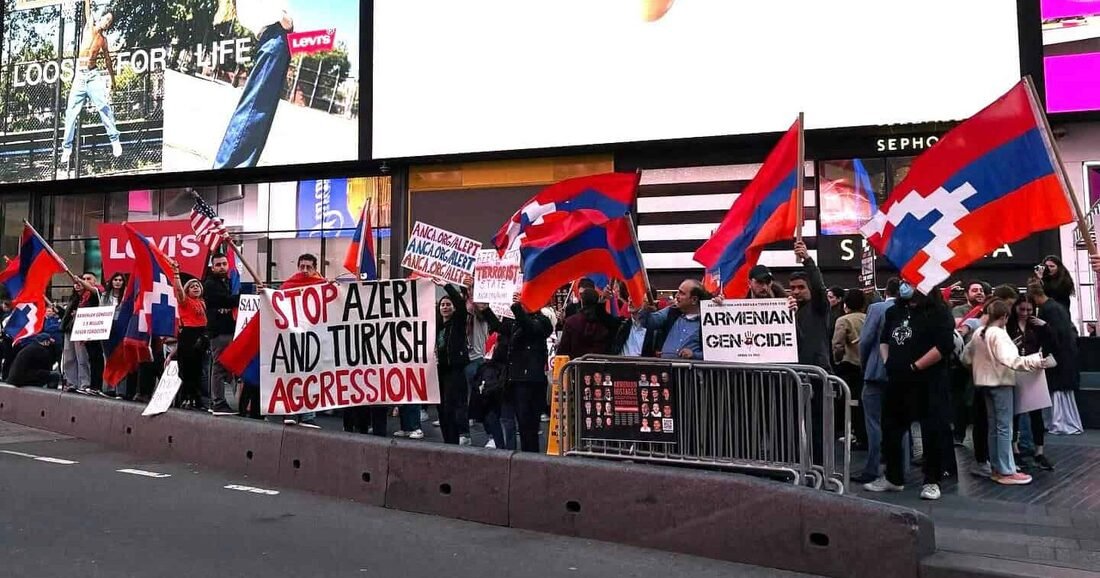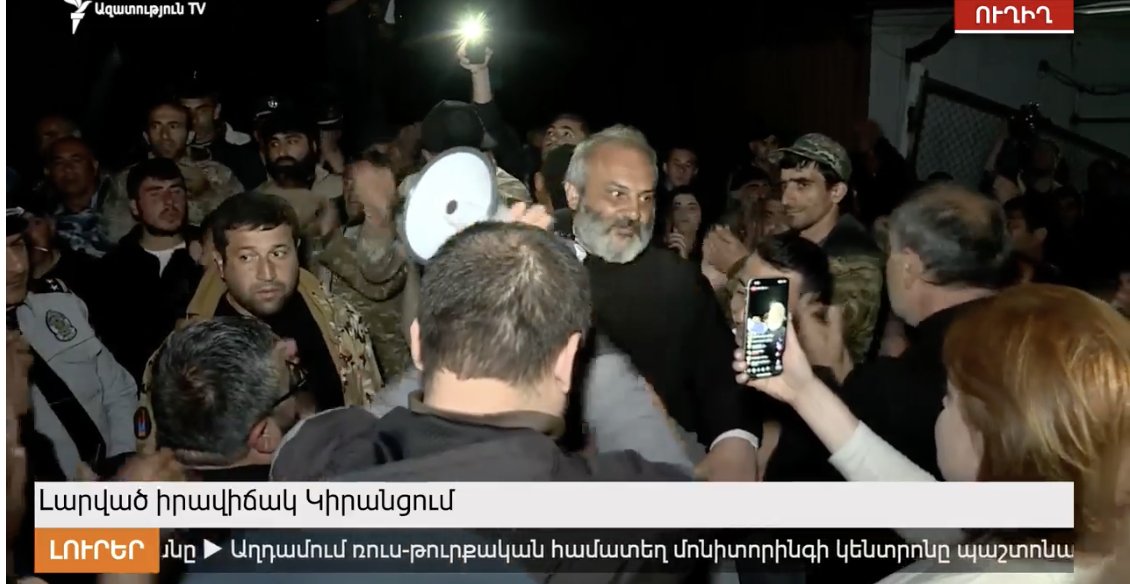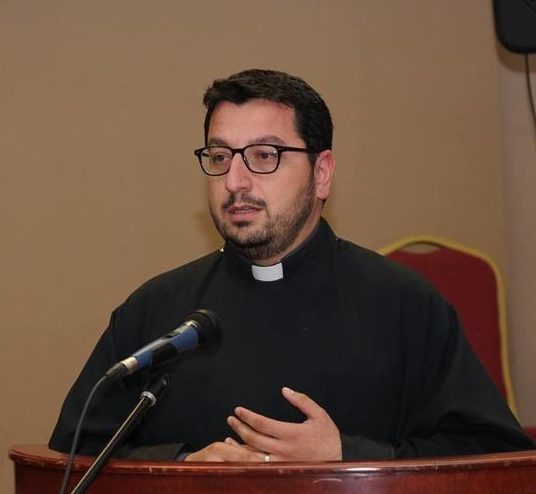 Protesting and remembering in New York
Protesting and remembering in New York
Public gatherings and demonstrations, such as protests, candlelight vigils and marches, have become a symbol of Armenian Genocide commemorations in both the Republic of Armenia and Armenian communities in the diaspora. Many people may question the importance of such events, as the media often does not provide enough coverage, politicians do not do much beyond giving lip service, and the perpetrators do not accept responsibility for the Genocide. However, these public events, from the streets of Yerevan to Times Square and beyond, send a strong message that we have not forgotten what happened to us 109 years ago, and we demand justice and accountability for the Genocide committed against our people.
Internally, organizing and participating in these events is equally important, because it strengthens our communal identity. Every young person who takes the podium to speak has done their homework and has learned the history of what happened to their ancestors, which then becomes their own history. In this age of virtual reality, A.I. and social media, in which young people can easily find a counterfeit sense of identity behind the locked doors of their bedrooms, it is crucial to forge our communal identity through events like these, which connect us to our real world, real people and real issues.
However, there are currently different types of protests taking place across Armenia. We continue to watch disturbing scenes of police subduing protestors in the Republic of Armenia. The protestors are demonstrating against the decision by Armenia’s Prime Minister Nikol Pashinyan to give away four villages in the Tavush region to Azerbaijan. This situation is alarming on multiple levels. First, the freedom of speech and expression of the protesters is being brutally suppressed. Second, the democratically elected prime minister is going against the will of his own people and serving the interests of Azerbaijan and Turkey. According to The Guardian, Pashinyan urged Armenians to recognize that the way this issue (i.e. surrendering four villages) is handled will determine the viability of the future peace process with Azerbaijan. Lastly, the lack of real and credible opposition within the government of the Republic of Armenia is a matter of concern.
 Protesting in Tavush (screenshot)
Protesting in Tavush (screenshot)
As a clergyman, it is not my place to be heavily involved in politics, but as a concerned Armenian, it is extremely difficult to watch the degradation of Armenian nationalism under the pretext of securing peace in the region.
The attempts made by the Armenian government to suppress the protestors are futile and will never succeed. As diasporan Armenians, we must continue to strengthen our Armenian national identity, which constitutes our shared identity.
In an article titled “Why Isn’t Anyone Talking About the Exodus of Christians in Nagorno-Karabakh?” published in America Magazine on April 25, 2024, Kevin Clarke summarized Azeri politics by quoting a statement from President Ilham Aliyev: “Azerbaijan would not stand by while Armenia restores its defensive capacity…Now the Armenians appear willing to accept the loss of Nagorno-Karabakh, but maybe in five years’ time, when they are supplied with deadly weapons, they will say again, ‘Karabakh is Armenia,’ and what should we do? We cannot wait.”
Aliyev’s sentiments suggest two things: first, no concession from the Armenian side will be enough to establish peace in the region, and second, Aliyev is well aware that the Artsakh case is not closed.
The attempts made by the Armenian government to suppress the protestors are futile and will never succeed. As diasporan Armenians, we must continue to strengthen our Armenian national identity, which constitutes our shared identity. It is imperative that everyone understands that no part of our homeland should be used as a bargaining tool. The Armenian Genocide is a documented historical fact, and those responsible must take full responsibility. Our collective identity as Armenians is not an outdated notion or a liability; rather, it is our moral compass, built on the values of the Armenian church and the communal consciousness of our forefathers.
I believe that this year’s Armenian Genocide commemoration carries a clear message. The feelings of despair and hopelessness that we have all experienced since the Artsakh War of 2020 and the mass exodus of Armenians from Artsakh in 2023 need to be replaced with a renewed commitment to pursuing justice and safeguarding Armenia. The input of every Armenian is extremely important in this matter.
Author information

Rev. Fr. Nareg Terterian
Fr. Nareg is a graduate of the Armenian Theological Seminary of the Great House of Cilicia in Antelias and has an MA in Pastoral Theology and an M.S.Ed in Clinical Mental Health Counseling from St John’s University of New York. He was ordained to the rank of priesthood on 2004. In 2005 he was assigned as the pastor of St. Sarkis Armenian Apostolic Church in Douglaston, NY. Fr. Terterian is married to Yeretsgin Annie and blessed with three children: Hovsep, Laurie and Avedis.
Fr. Nareg is a Licensed Mental Health Counselor.
The post Of protests and protests appeared first on The Armenian Weekly.
